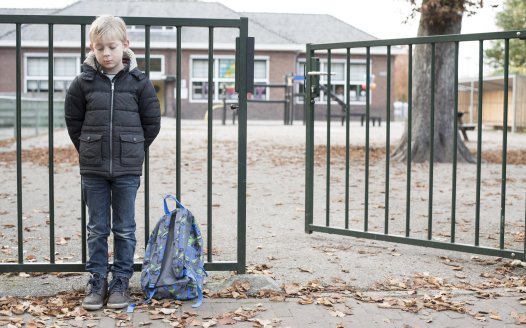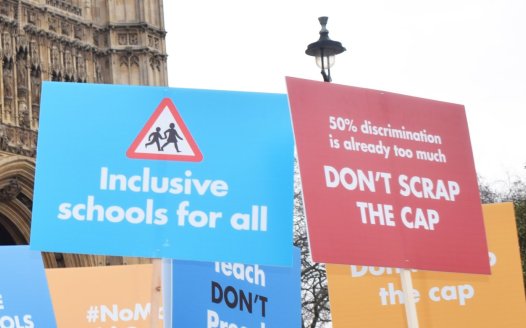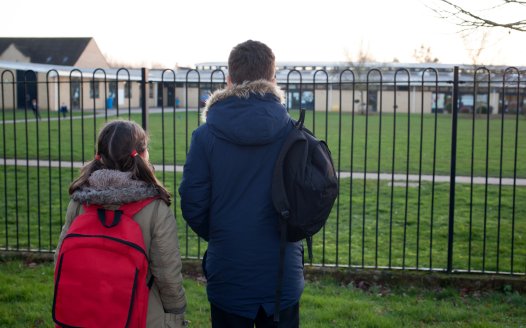Councils say faith schools disadvantaging looked after children
Posted: Thu, 28th Mar 2024
Evidence increasing that faith schools disadvantage those with greatest need.
Faith schools are disadvantaging looked after children through their admissions arrangements, local authorities have said.
In its latest annual report published this week, the Office of the Schools Adjudicator (OSA) said some local authorities report that faith schools in their area "effectively disadvantage" looked after children (LAC) whose families are not of the school's faith, as a result of faith-based oversubscription criteria and the local pattern of schooling.
Schools use oversubscription criteria in their admissions arrangements to determine which children will be prioritised for a place if there are more applications than places available. The OSA oversees school admissions arrangements.
Faith schools very often prioritise applications from families who share the religion of the school. By law, oversubscription criteria must designate LAC and previously looked after children (PLAC) as first priority. But faith schools can prioritise all children from families who share the school's faith above LAC and PLAC children from families of different beliefs.
In the report, one local authority describes faith schools as the "main difficulty we face" to ensuring admissions serve the needs of LAC and PLAC.
This was attributed to faith schools prioritising LAC/PLAC from the same religious background as the school ahead of those who were not, despite guidance that "best practice is to place all LAC/PLAC in the top criterion regardless of faith".
This means LAC/PLAC who do not share the schools' faith background are "unable to access these schools". This creates "further uncertainty for these vulnerable young people when all their peers have confirmed school places".
It could also create additional workload by requiring a local authority to pursue a direction from the Secretary of State in order secure a place for such pupils, the report says.
As well as disadvantaging LAC and PLAC, research has shown faith schools also treat pupils from lower-income backgrounds less favourably.
In February, a report from the Education Policy Institute found that schools linked to dioceses, both in Multi-Academy Trusts and non-Multi Academy Trusts, are less likely to reflect their local areas in terms of the number of pupils they admit from low income backgrounds.
Similarly, research published in January by the Sutton Trust found that faith schools "are consistently more socially selective than non-religious schools", admitting significantly fewer pupils on free school meals.
And research from the London School of Economics last year found faith schools admit fewer pupils with special educational needs and disabilities.
Faith schools are also more ethnically segregated and restrict choice for many families.
NSS: Faith based selection "should be reviewed as a matter of urgency"
National Secular Society campaigns officer Jack Rivington said: "Schools should expand the opportunities of every pupil, not limit them. The mounting evidence that faith schools perpetuate unfairness and disadvantage in our society should ring alarm bells.
"If religiously selective admissions are leading to looked after children, children with special educational needs, and those who are socio-economically disadvantaged being treated less favourably, the exemptions which allow schools to discriminate should be reviewed as a matter of urgency."
End religious discrimination in school admissions
Our schools shouldn't select pupils based on faith. Join our campaign.









